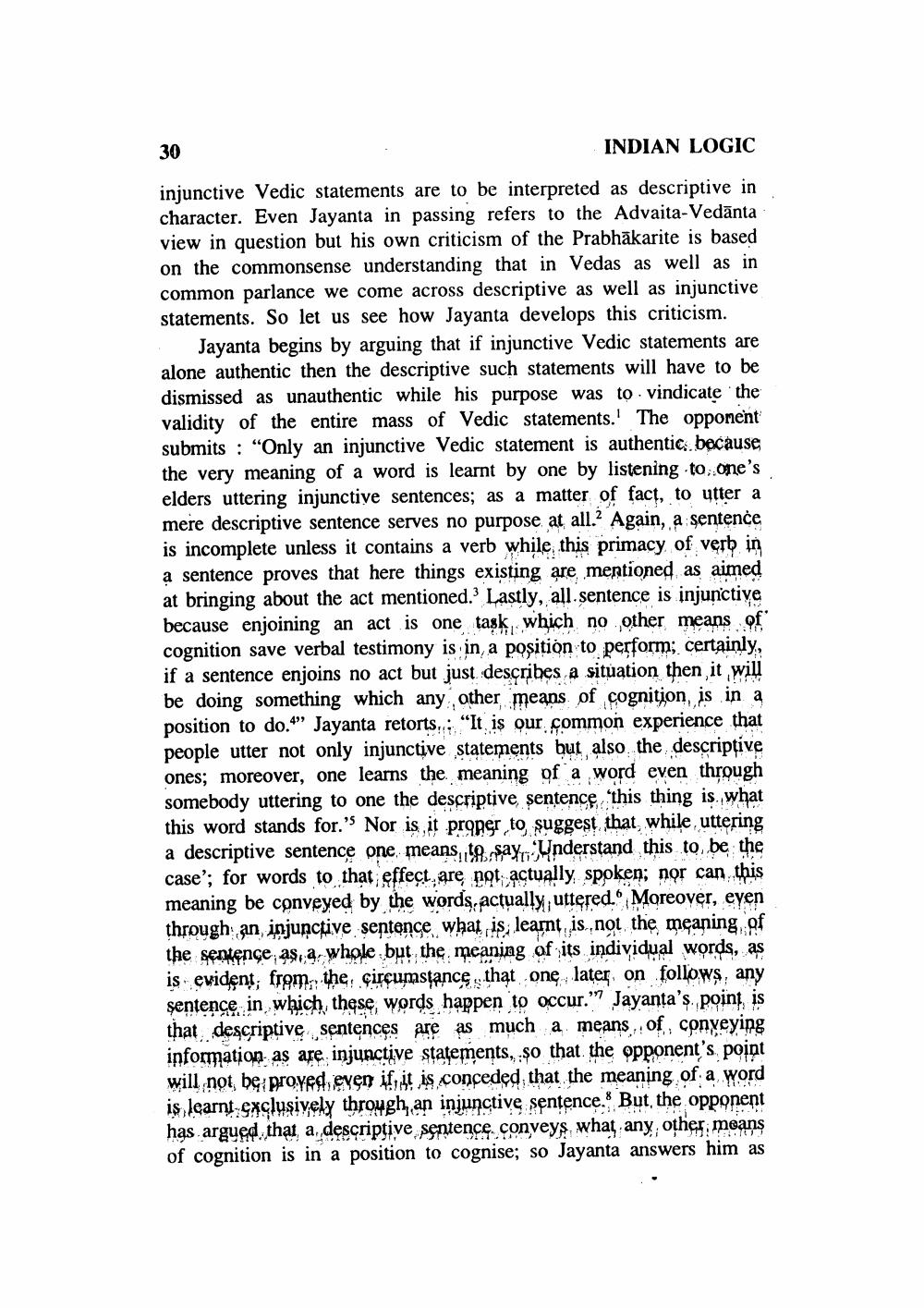________________
INDIAN LOGIC
injunctive Vedic statements are to be interpreted as descriptive in character. Even Jayanta in passing refers to the Advaita-Vedänta view in question but his own criticism of the Prabhakarite is based on the commonsense understanding that in Vedas as well as in common parlance we come across descriptive as well as injunctive statements. So let us see how Jayanta develops this criticism.
30
Jayanta begins by arguing that if injunctive Vedic statements are alone authentic then the descriptive such statements will have to be dismissed as unauthentic while his purpose was to vindicate the validity of the entire mass of Vedic statements. The opponent submits "Only an injunctive Vedic statement is authentic because the very meaning of a word is learnt by one by listening to one's elders uttering injunctive sentences; as a matter of fact, to utter a mere descriptive sentence serves no purpose at all. Again, a sentence is incomplete unless it contains a verb while this primacy of verb in a sentence proves that here things existing are mentioned as aimed at bringing about the act mentioned.' Lastly, all-sentence is injunctive because enjoining an act is one task which no other means of cognition save verbal testimony is in a position to perform; certainly, if a sentence enjoins no act but just describes a situation then it will be doing something which any other means of cognition, is in a position to do." Jayanta retorts. "It is our common experience that people utter not only injunctive statements but also the descriptive ones; moreover, one learns the meaning of a word even through somebody uttering to one the descriptive, sentence this thing is what this word stands for." Nor is it proper to suggest that, while uttering a descriptive sentence one means to say Understand this to be the case'; for words to that effect are not actually spoken; nor can this meaning be conveyed by the words, actually, uttered. Moreover, even through an injunctive sentence what is learnt is not the meaning of the sentence as, a whole but the meaning of its individual words, as is evident, from the circumstance that one later on follows, any sentence in which, these, words happen to occur." Jayanta's point is that descriptive sentences are as much a means of conveying information as are injunctive statements, so that the opponent's point will not be proved, even if, it is conceded, that the meaning of a word is learn exclusively through, an injunctive sentence. But, the opponent has argued that a descriptive sentence conveys what any other means of cognition is in a position to cognise; so Jayanta answers him as
1




